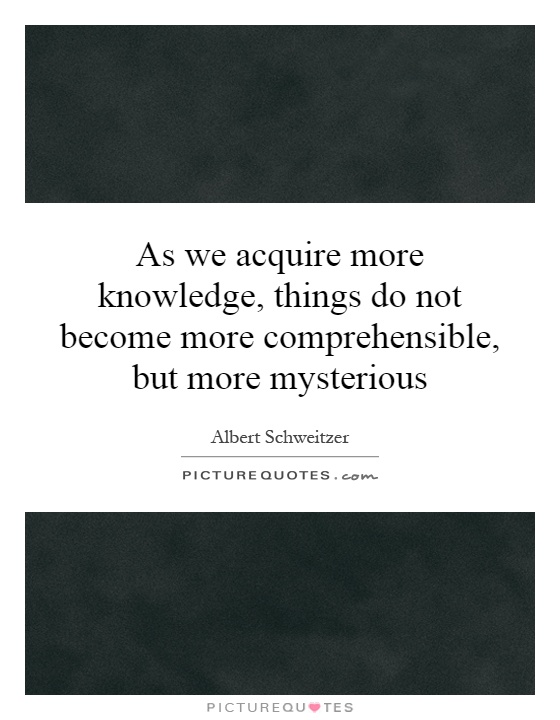As we acquire more knowledge, things do not become more comprehensible, but more mysterious

As we acquire more knowledge, things do not become more comprehensible, but more mysterious
Albert Schweitzer, a renowned theologian, philosopher, and physician, once said, "As we acquire more knowledge, things do not become more comprehensible, but more mysterious." This statement encapsulates the essence of the human quest for understanding and the inherent complexity of the world around us.Schweitzer's words suggest that the more we learn, the more we realize how much we do not know. This paradoxical nature of knowledge is a fundamental aspect of the human experience. As we delve deeper into a subject, we uncover layers of complexity and nuance that challenge our preconceived notions and beliefs. This process of discovery can be both exhilarating and daunting, as it forces us to confront the limits of our understanding and grapple with the mysteries of the universe.
In the context of Albert Schweitzer's life and work, this idea takes on added significance. Schweitzer was a polymath who made significant contributions to a wide range of fields, including theology, philosophy, and medicine. His groundbreaking work in the field of medical ethics and his philosophy of "reverence for life" have had a lasting impact on the way we think about our relationship to the natural world and our responsibilities to future generations.
Schweitzer's own journey of discovery was marked by a deep sense of humility and wonder at the mysteries of existence. He believed that true wisdom lay in acknowledging our own limitations and approaching the world with a sense of awe and reverence. For Schweitzer, knowledge was not a means to an end, but a never-ending process of exploration and discovery.












 Friendship Quotes
Friendship Quotes Love Quotes
Love Quotes Life Quotes
Life Quotes Funny Quotes
Funny Quotes Motivational Quotes
Motivational Quotes Inspirational Quotes
Inspirational Quotes